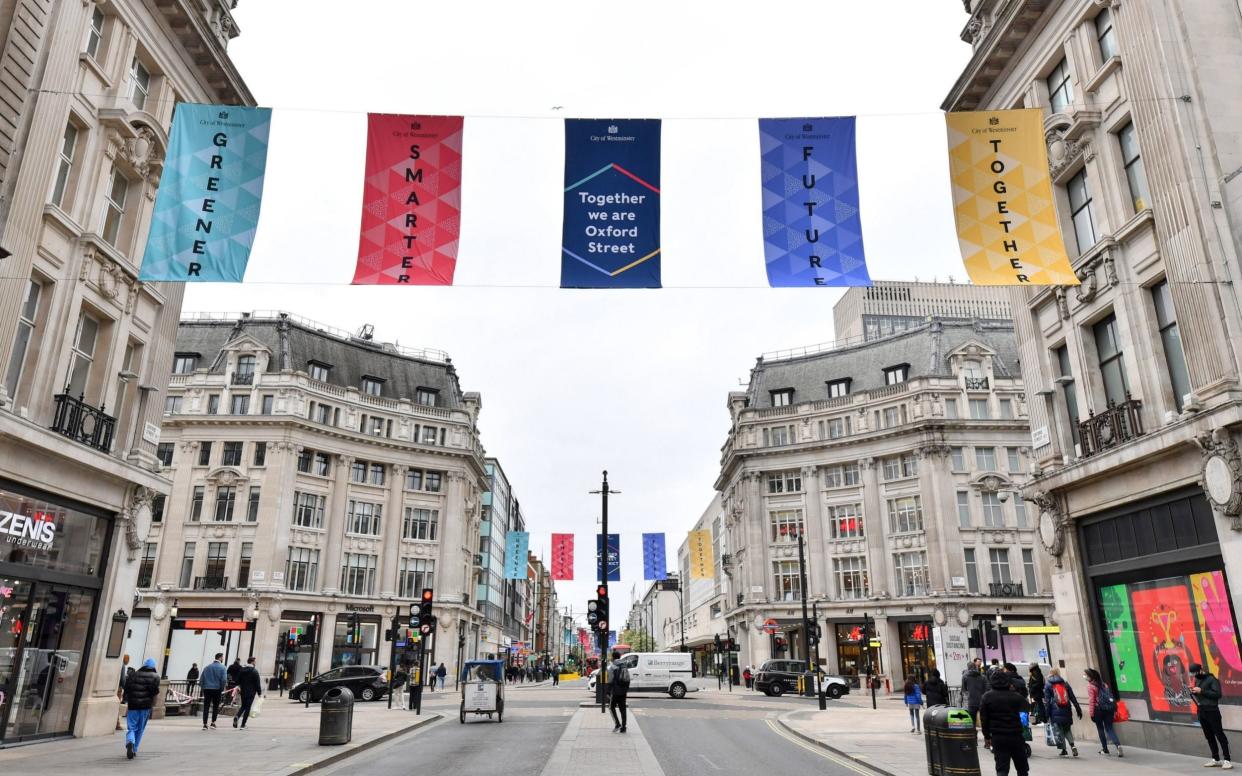Britain’s back in business as economic recovery gains pace

Britain’s economy is poised to bounce back sharply as restrictions are eased on Monday after a host of data suggested confidence among bosses is surging and firms have launched a hiring spree.
A study by Deloitte found that chief financial officers are more optimistic now than at any point in the last 13 years as the vaccine rollout boosts hopes of a sharp recovery.
As shops reopen and pubs are allowed to serve drinks outside for the first time in months, Deloitte found that executives’ appetite for spending has risen at the fastest pace on record and a greater share now expect to increase spending on staff and capital than at any point since 2015.
Separate research by the Federation of Small Businesses found that the more than half of firms expect revenues to rise over the next three months, a six-year high.
A NatWest survey showed increased recruitment across Britain as most regions recorded rising inflows of work. The BDO Employment Index revealed that the jobs market hit a three-month high in March.
The positive figures come before official GDP data for February is released tomorrow, with analysts expecting the economy to have grown by as much as 0.8pc from the previous month in a sharp bounce back.
Ian Stewart, chief economist at Deloitte, said: “The increase in hiring expectations is the largest ever such increase [in our survey].” This could lead to a “golden scenario” of pent up demand from consumer spending and surging supply from business investment enabling strong growth without generating the inflation which would force the Bank of England to raise interest rates and rein in growth, he said.
Deloitte’s survey also found that two-thirds of bosses expect the bulk of their workforces will return to the office by the third quarter of the year.
After GDP slipped back 2.9pc in January when national restrictions were reimposed, economists expected the recovery to begin again in February and pick up steam in March and April.
Forecasters believe the strength of the pick-up will depend on shoppers, diners and drinkers rushing to spend savings built up during lockdown. Morgan Stanley estimates that household savings have reached around 8pc of GDP, equivalent to around £170bn.
Sanjay Raja, an economist at Deutsche Bank who is predicting 0.8pc growth in February, said: “Our expectation is very much that January GDP will be the last negative print that we see for some time to come with the UK recovery already under way.”
Analysts at Oxford Economics upgraded their forecasts for UK GDP for the second time in a month. They now expect the growth of 7.2pc this year, up from previous predictions of 6.8pc and 5.9pc before that.
However, some experts are divided over how much of households’ lockdown savings will be spent to boost the recovery.
Bruna Skarica, of Morgan Stanley, said: “With strict lockdowns, the bulk of the savings was forced on and concentrated among those on middle-to-high incomes, as well as older consumers.”
These consumers are less likely to spend, the bank said, meaning the proportion of excess savings which gets spent could be as little as 5pc.
Meanwhile a new YouGov survey found consumers are increasingly happy to spend time close to other people. More than four-fifths of people say they would feel comfortable visiting a pub garden.

